All Stories
-
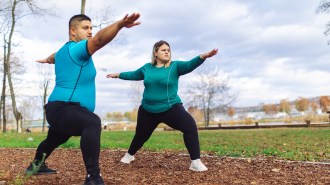 Health & Medicine
Health & MedicineMore than 1 billion people worldwide are now estimated to have obesity
A new analysis suggests that the prevalence of obesity has doubled in women, tripled in men and quadrupled in children and adolescents from 1990 to 2022.
-
 Climate
ClimateWaterlogged soils can give hurricanes new life after they arrive on land
New studies show that the long-hypothesized “brown ocean effect” is real, helping to refuel 2018’s Hurricane Florence and other storms after landfall.
-
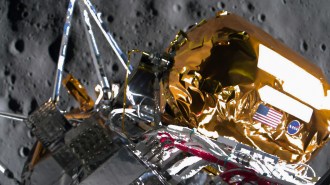 Planetary Science
Planetary ScienceOdysseus’ historic moon mission comes to an end
Odysseus downloaded data from all payloads before going to sleep February 28. The cold lunar night proved fatal to efforts to reawaken the lunar lander.
By Adam Mann -
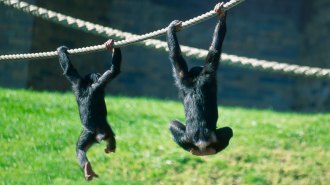 Genetics
GeneticsA genetic parasite may explain why humans and other apes lack tails
Around 25 million years ago, a stretch of DNA inserted itself into an ancestral ape’s genome, an event that might have taken our tails away.
-
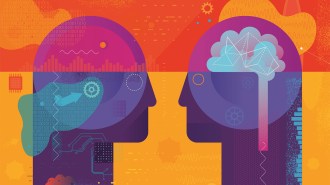 Artificial Intelligence
Artificial IntelligenceWhy large language models aren’t headed toward humanlike understanding
Unlike people, today's generative AI isn’t good at learning concepts that it can apply to new situations.
-
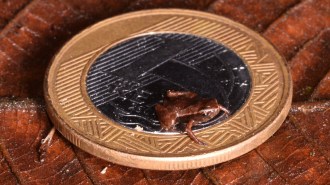 Animals
AnimalsThe Brazilian flea toad may be the world’s smallest vertebrate
Brazilian flea toads are neither a flea nor a toad, but they are almost flea-sized. The frogs are small enough to fit on a pinkie fingernail.
-
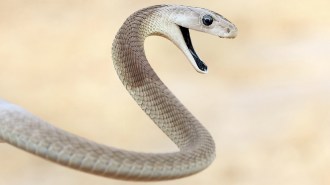 Health & Medicine
Health & MedicineSnake venom toxins can be neutralized by a new synthetic antibody
A lab-made protein protected mice from lethal doses of paralyzing toxins found in a variety of snakes, a new study reports.
By Meghan Rosen -
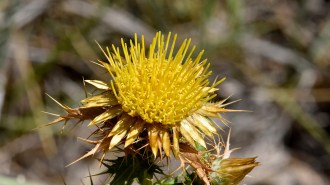 Plants
PlantsOn hot summer days, this thistle is somehow cool to the touch
In hot Spanish summers, the thistle Carlina corymbosa is somehow able to cool itself substantially below air temperature.
-
 Math
MathHow two outsiders tackled the mystery of arithmetic progressions
Computer scientists made progress on a decades-old puzzle in a subfield of mathematics known as combinatorics.
By Evelyn Lamb -
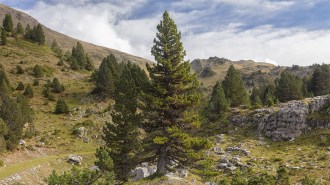 Plants
PlantsAncient trees’ gnarled, twisted shapes provide irreplaceable habitats
Traits that help trees live for hundreds of years also foster forest life, one reason why old growth forest conservation is crucial.
By Jake Buehler -
 Health & Medicine
Health & Medicine50 years ago, computers helped speed up drug discovery
In 1974, a computer program helped researchers search for promising cancer drugs. Today, AI is helping speed up drug discovery.
-
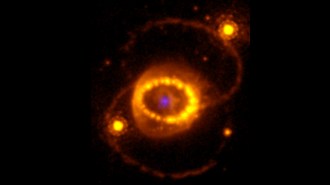 Astronomy
AstronomyJWST spies hints of a neutron star left behind by supernova 1987A
Signs of highly ionized atoms in dusty clouds at SN 1987A’s explosion site suggest a powerful source of X-rays — likely a neutron star — lurks within.
By Adam Mann